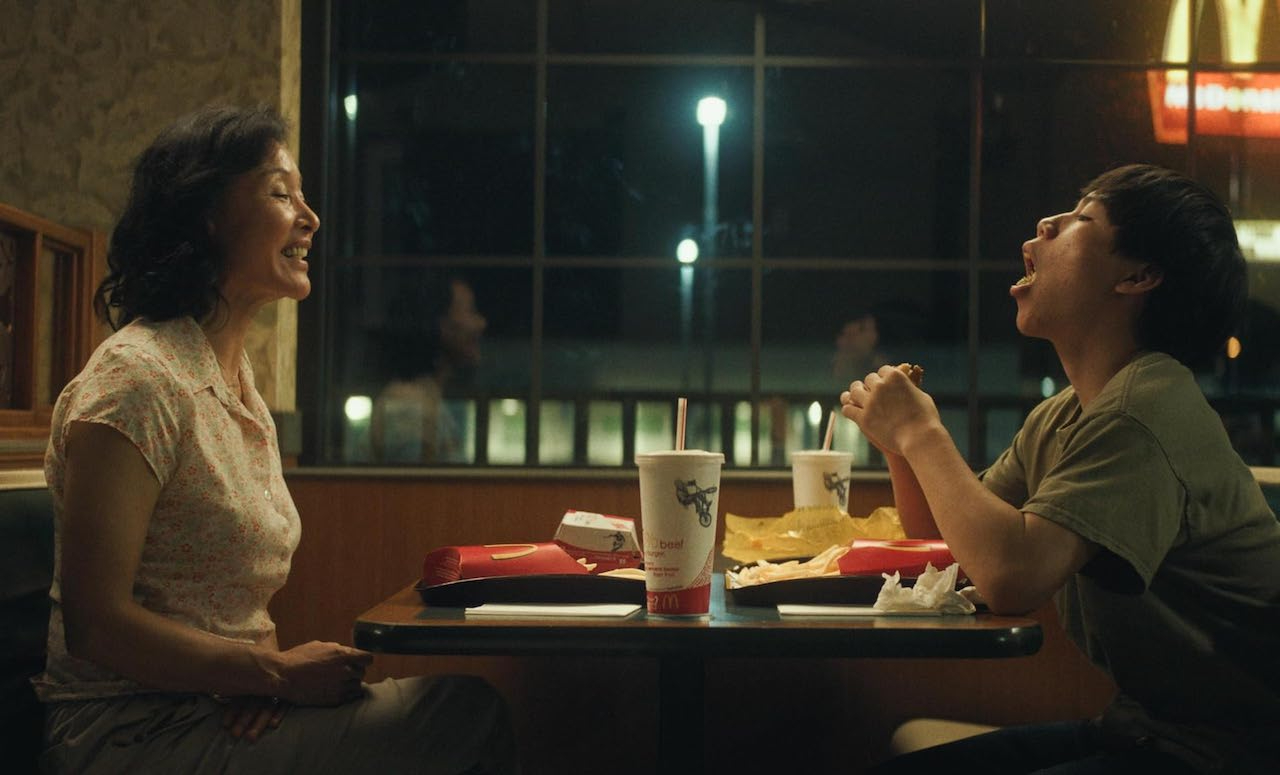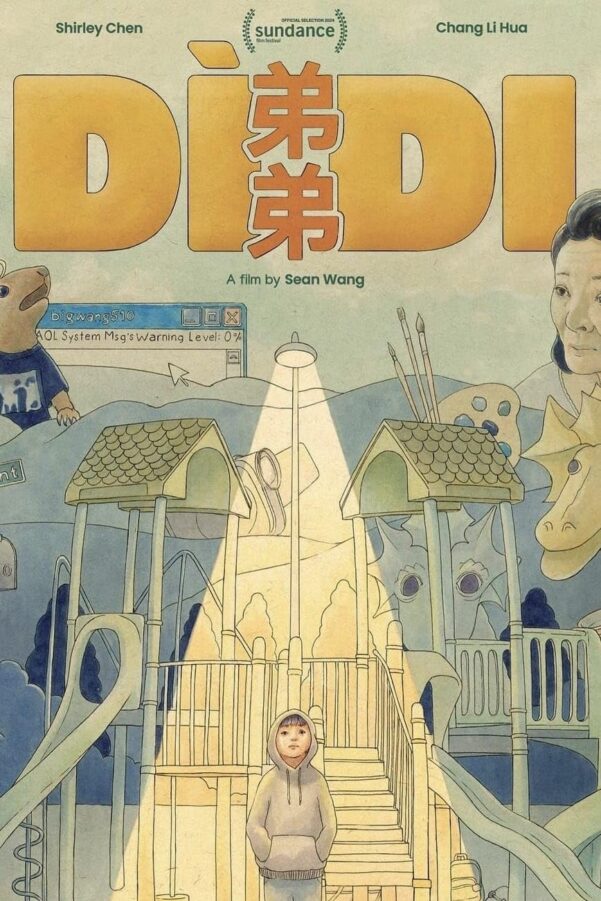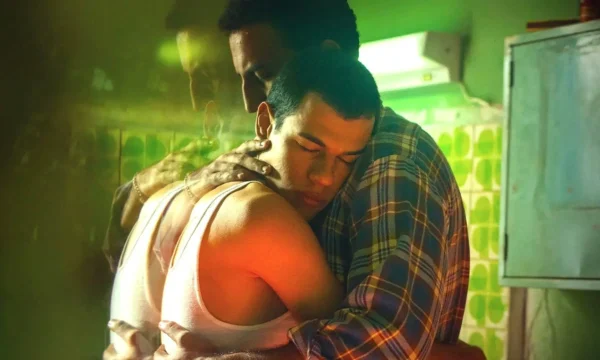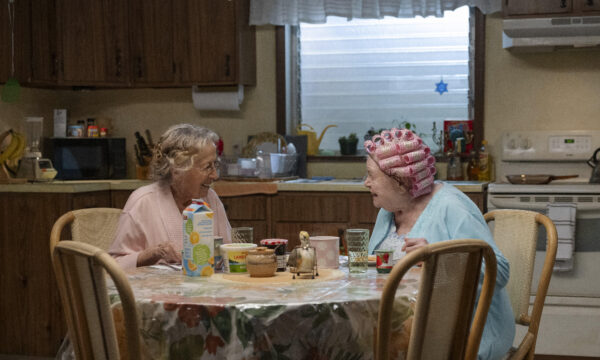Dìdi

The late 2000s is one of the most culturally driven years of the modern era, a defining point in time with an impact that builds the foundation of today’s society. It showcased the early beginnings of internet socialisation and content creator culture, and produced cult classic media continuously referred to today. It was also a time wherein dark humour was prevalent and uttering all kinds of slurs was a normalised joke used by kids and adults alike. Coupling that very polarising environment with teenage anxiety, hormones, peer pressure and the struggle of Asian immigrants and their children assimilating into American society, while also holding close their country’s traditions, is one of the multifaceted ways Sean Wang achieves excellence in storytelling with Dìdi.
Like a modern Catcher in the Rye through the lens of 13-year-old Chris, this coming-of-age feature starring Izaac Wang follows Chris the summer before the start of his high school years. His social awkwardness and constant attempts to fit in with his friends result in several lies and mishaps that cause a rift between him and those he loves. As he struggles through teen angst and connecting with new people, he ignores friends, takes for granted his mother’s efforts to build a home in the stead of an absent father, and fights with his sister who is leaving for college. Izaac’s performance as Chris perfectly captures the essence of an adolescent juggling his first puppy love, the struggle for genuine self-acceptance, and the innate selfishness of a teen who can’t see past their own problems.
The young actor affords his character – who’s extremely flawed and constantly presents reasons to be annoyed at him or suffer second-hand embarrassment on his behalf – a very charming innocence and loneliness that draws viewers to root for him. Sean’s writing paired with Izaac’s charismatic performance evokes a genuine relatability to Chris; the audience can easily see themselves in his shoes and understand where he’s coming from despite all the deceits and careless decisions. The world-building is also extremely effective in setting up the nostalgia of living in the late 2000s and going through these same teen dilemmas. Viewers will remember similar situations Chris is facing in their own experiences; Dìdi is immersive in a way that it’s truly like a time capsule, not just for that era, but also for anyone who lived through it as a teenager.
Still, the highlight of Dìdi goes beyond just Chris as a protagonist and the familiar environment curated by the film. It’s the relationships and the core characters surrounding him that truly make this picture such a fulfilling experience. Seeing glimpses of his mother’s story, but never truly tapping into it, is an effective method of providing the character depth but maintaining the sanctity of Chris’s perspective. Then there’s the sibling dynamic between Chris and Vivienne. Elucidating how easily sibling pranks and petty fights can result in emotional damage, and then showing the arc of the two of them working to reconcile, is one of the most heartwarming moments throughout the film. Most of all, the feature ends without truly resolving any significant break in Chris’s relationships: there are no easy apologies or forgiveness, and some friendships may never be repaired. But that is the point of childhood – it’s uncertain, indefinite and temporary.
Dìdi is a beautiful feature. There are moments of light-hearted fun and chaotic misadventures that will get people laughing with tears in their eyes. But at the core of it is a nuanced exploration of teenage anxiety, the culture clash that surrounds immigrant children, and more importantly, it’s a story of a young boy just trying to find his place in a world he perceives is set to ridicule, pressure and isolate him.
Mae Trumata
Dìdi is released nationwide on 2nd August 2024.
Watch the trailer for Dìdi here:























Facebook
Twitter
Instagram
YouTube
RSS